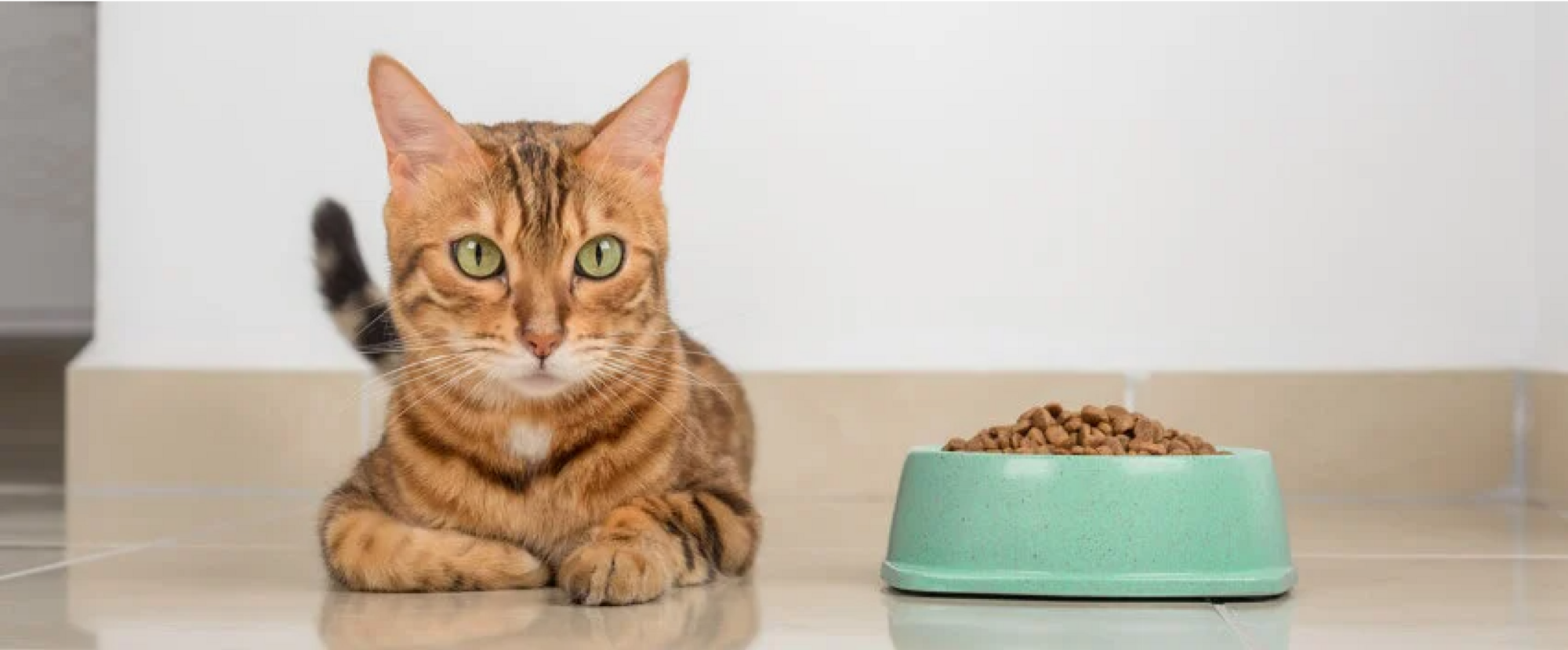Last Updated: 06/05/2025
Lymphoma in Cats: Types Causes Symptoms and Treatment
Read all about the types causes symptoms treatment and prognosis of feline lymphoma
Author: Dr Samantha Wycherley BVSc
Reading Time: 19 minutes - medium read
Causes, Symptoms, Treatment and Prognosis of Feline Lymphoma
Has your cat just been diagnosed with feline lymphoma? Or perhaps it's on your vet's differential list and you are wanting to learn more. It can be a scary diagnosis for your cat to receive, however it's important to be informed about the different types, symptoms and treatments available in order to be best prepared on what to expect and how to help your cat. This article will try to answer some of the most common questions you might have in regards to lymphoma in cats.
Contents:
Further reading
Types Of Lymphoma in Cats
Lymphoma is a type of cancer that affects the lymphatic system. Although all types of lymphoma arise from the lymphatic system, there are a number of different types/locations of lymphoma in cats and they all tend to present and behave differently. Some are more aggressive and carry a worse prognosis than others.
Intestinal Lymphoma
Intestinal lymphoma is the most common type of lymphoma in cats. It is usually diagnosed in middle aged - older cats and affects the gastrointestinal system.
Intestinal lymphoma can be further divided into small cell intestinal lymphoma and large cell intestinal lymphoma. Small cell intestinal lymphoma tends to come on more slowly and cats can have mild symptoms for a long period of time whereas cats with the large cell version may present with symptoms more suddenly.
This type of lymphoma can appear as a mass in the intestine or in many cases it will be a more subtle thickening of the intestines as cancerous cells infiltrate the intestinal wall lining.
Symptoms of Intestinal Lymphoma

Weight loss

Persistent change in bowel habits

Vomiting

Diarrhoea

Lethargy
Mediastinal Lymphoma
The mediastinum is the space in the chest that contains important organs such as the heart, trachea and oesophagus, as well as important blood vessels and nerves. It also contains lymph containing organs such as the lymph nodes or thymus which can be affected by lymphoma. In this type of lymphoma, the space the tumour is occupying will affect the structures around it - particularly the lungs.
This type of lymphoma has a strong association with the Feline Leukemia Virus (FeLV).
Symptoms of mediastinal lymphoma

Increased respiratory rate

Changes in breathing effort
Renal Lymphoma
Renal Lymphoma occurs when cancerous lymphoma cells appear in the kidneys. Signs of renal lymphoma are similar to those of cats with kidney failure.
Symptoms of renal lymphoma

Increased water intake

Increased urination

Lethargy
Nasal Lymphoma
Nasal lymphoma refers to lymphoid tumours that develop in the nasal cavity of cats. This is the most common type of nasal tumour in cats.
Symptoms of nasal lymphoma

Sneezing

Inappetence

Nasal discharge

Nasal deformity
Multicentric lymphoma
In multicentric lymphoma, disease is primarily found in the external lymph nodes - such as the lymph nodes under the neck. Although this type of lymphoma is the most common form in dogs it is very uncommon in cats.
Symptoms of multicentric lymphoma

Enlarged lymph nodes

Lethargy

nappetence

Nasal deformity

What Causes Lymphoma in Cats?
Why has my cat developed lymphoma? Is there an underlying cause?The underlying cause of intestinal lymphoma is poorly understood and there is no definitive answer, though it is suspected that there may be a genetic component involved.In cases of renal, mediastinal and multicentric lymphoma there is a strong association with the Feline Leukaemia Virus (FeLV). The Feline Immunodeficiency Virus (FIV) has also been associated with an increased risk of lymphoma in cats although to a lesser extent.FeLV is rare in Australia however it is present, whereas FIV is more prevalent and outdoor cats are at risk of FIV following bite wounds from affected cats. There are vaccinations available for both of these viruses and it's recommended to discuss your cat's individual risk with your vet.
How is Lymphoma Diagnosed?
Diagnosis of lymphoma is not always straightforward and will often involve blood testing, imaging (x-ray for mediastinal lymphoma and ultrasound for renal and intestinal lymphoma).While imaging can put lymphoma on the differential list, a diagnosis can't be confirmed without a biopsy or fine needle aspirate - this enables the cancer cells to be visualised under a microscope.In some cases more testing on the biopsy samples is needed by a veterinary pathologist to further classify the type of lymphoma.

How is Feline Lymphoma Treated?
So where do you go from here? Can lymphoma be treated?Multiagent chemotherapy is the treatment of choice for most cases however surgery may also be an option for localised tumours (in cases where a tumour is obstructing the intestine), this is typically combined with chemotherapy.Many cats will respond well to chemotherapy and will often go into remission - this means the symptoms disappear (not that the disease has been cured).In cases where chemotherapy is declined as a treatment option, steroids can be used to decrease inflammation and suppress the immune response, however the improvement seen with steroids alone tends to be short lived.Radiation therapy can be used as a treatment option for nasal lymphoma.
Prognosis
With treatment, cats with low grade intestinal lymphoma can live for an average of 18 months following diagnosis, with cats with high grade lymphoma this time is reduced to an average of 6 months.Unfortunately the prognosis is worse for other lymphoma types with mean survival time only being a couple of months in cases of mediastinal and renal lymphoma.If you are concerned about your cat's health it's always best to book an appointment for a check up with your vet.
Further Reading
For further reading check out the following articles:Feline Immunodeficiency VIrus (FIV)My pet has a lump - what do I do?Vomiting and regurgitation in catsCauses of diarrhoea in catsKidney disease in pets
For further reading check out the following articles:
Feline Immunodeficiency VIrus (FIV)
My pet has a lump - what do I do?
Want to know more? Check out our Discover Page for more tips from our expert vets on keeping your pets happy and healthy.